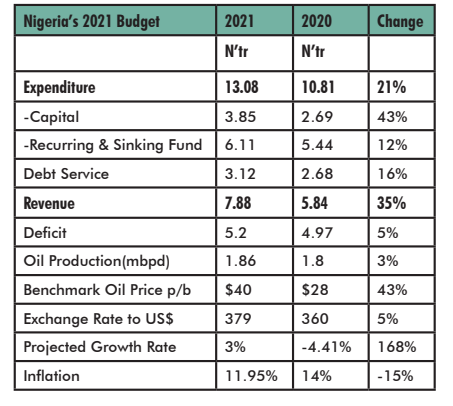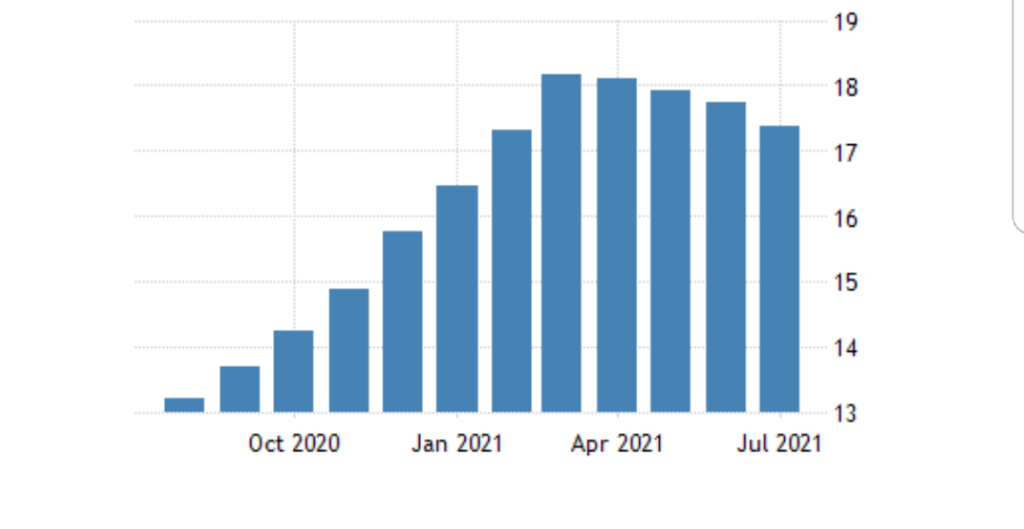When the Covid19 pandemic hit the entire globe, it was expected that there would be a resultant economic crisis from the pandemic. And few months, after some vaccines have been created and vaccinations are happening around the world, people are relaxing, economies are rejigging et all. And that is when the full impact of the months of lockdowns and shutdowns hit the entire world. Every country in the world is suffering from one impact of the pandemic or another.

Nigeria is not left out; the economy has taken a huge hit as well. However, Nigeria’s case is quite peculiar. Yes, the Covid19 pandemic stopped or affected production, job losses, loss of manpower, etc. But another major crisis facing Nigeria is the dire insecurity in the country. The activities of Fulani herdsmen in farms across the country, the wanton destruction of crops, properties, and raiding of farmlands and villages have left a huge impact on the Nigerian food supply and human manpower across all sectors. Do we even include the activities of kidnappers, who have become a menace on Nigerian roads, disrupting the transportation of goods and services?
As of today, consumer prices have increased 1.06% over June 2021, and it was a 1.01% rise in May 2021. And everyone is complaining of the high increase in the cost of food and other daily consumables. However, core inflation, which excludes volatile agricultural produce, clocked in at 13.1% in June 2021, matching May’s reading. There are forecasts that inflation could belt at an average of 16.2% in 2021, which is up 0.5 percentage points from last June’s forecast. And it is expected to average 12.4% in 2022
NIGERIA – INFLATION DATA


Nigeria Facts
Value Change Date
Bond Yield: 11.50 0.0 % Sep 2020
Exchange Rate: 411.26. 4.08 % August 2021
The good news is that business conditions in Nigeria’s private sector economy are on a continuous improvement, albeit at a softer pace from June 2021, as the Stanbic IBTC Nigeria Purchasing Managers’ Index (PMI) eased to 53.6 in June from 54.4 in May.
Nigeria’s inflation has been higher than most African and Sub-Saharan countries for years now, and there does not seem to be any hope of a significant increase anytime soon. Inflation is not only unsteady, but it also bounces around, which is a sure sign of a struggling economy, and the results are often unemployment, high cost of goods and services, increase in poverty, etc. Nigeria’s economy gets a major part of its GDP from service sectors such as telecoms, finances, and oil. Nigeria derives a huge share of its state revenues from the oil sector. So, one can comfortably call Nigeria a “mixed economy”, because its market economy is partly regulated by the state. Nigeria Today The future of Nigeria looks bright, especially if it can maintain a stable inflation rate to avoid uncertainty and rash actions. Nigeria is one of the largest populations worldwide and also the largest economy in Africa, so, it is expected to be one of the countries with the highest economic growth over the next few decades. The demographic key indicators, like infant mortality rate, fertility rate, and the median age of the population, all point towards a bright future. Also, Nigeria seems poised to take bold steps in manufacturing, technological developments, and also has a huge deposit of natural resources. And then in Q2 2021, precisely in August, Nigeria’s GDP recorded a 5% growth, according to the NBS. These dynamics indicate that Nigeria and its inflation rate seem to be on the steady path to stabilization, hopefully.
